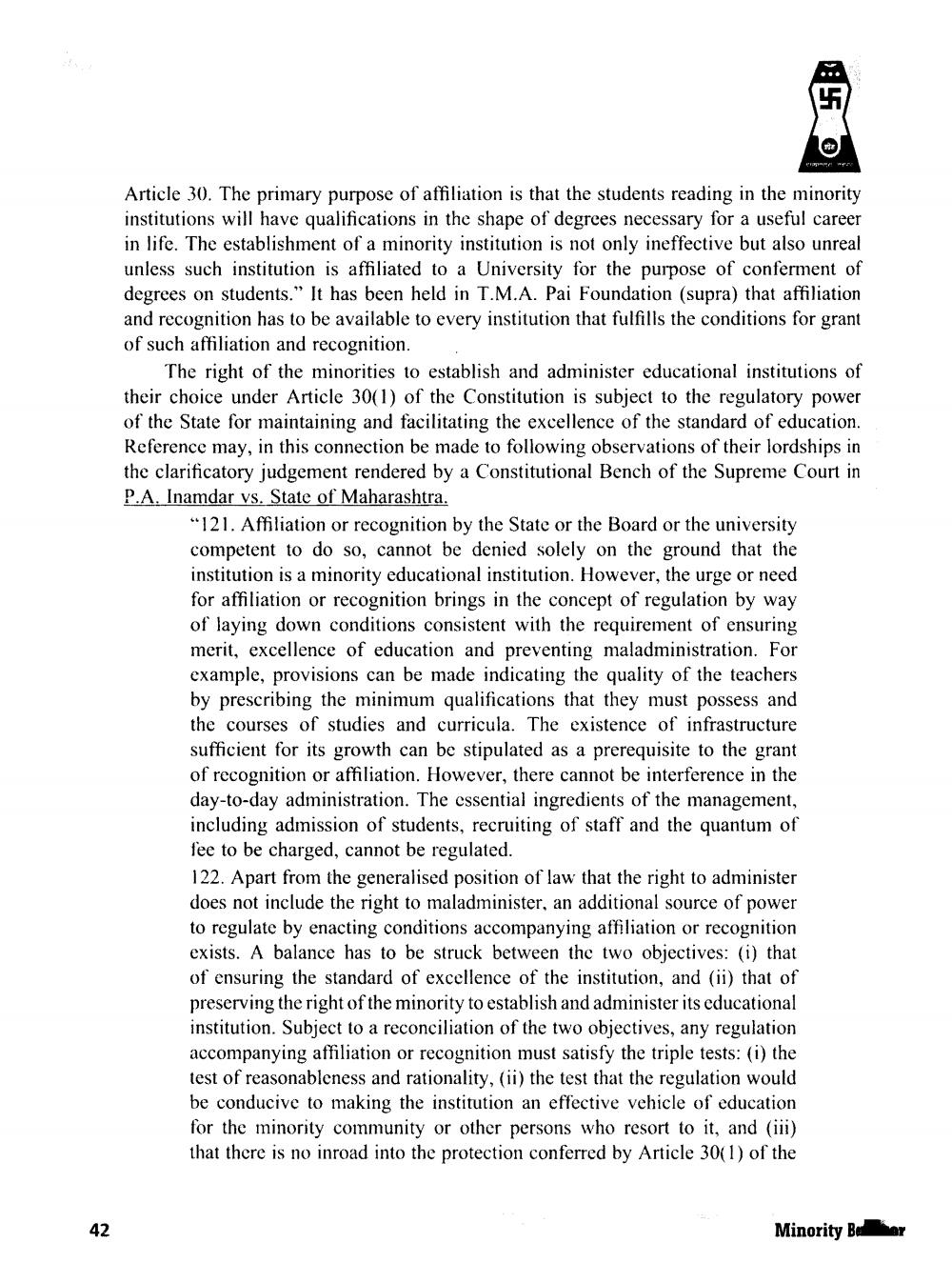________________
Article 30. The primary purpose of affiliation is that the students reading in the minority institutions will have qualifications in the shape of degrees necessary for a useful career in life. The establishment of a minority institution is not only ineffective but also unreal unless such institution is affiliated to a University for the purpose of conferment of degrees on students." It has been held in T.M.A. Pai Foundation (supra) that affiliation and recognition has to be available to every institution that fulfills the conditions for grant of such affiliation and recognition. .
The right of the minorities to establish and administer educational institutions of their choice under Article 30(1) of the Constitution is subject to the regulatory power of the State for maintaining and facilitating the excellence of the standard of education. Reference may, in this connection be made to following observations of their lordships in the clarificatory judgement rendered by a Constitutional Bench of the Supreme Court in P.A. Inamdar vs. State of Maharashtra.
"121. Affiliation or recognition by the State or the Board or the university competent to do so, cannot be denied solely on the ground that the institution is a minority educational institution. However, the urge or need for affiliation or recognition brings in the concept of regulation by way of laying down conditions consistent with the requirement of ensuring merit, excellence of education and preventing maladministration. For example, provisions can be made indicating the quality of the teachers by prescribing the minimum qualifications that they must possess and the courses of studies and curricula. The existence of infrastructure sufficient for its growth can be stipulated as a prerequisite to the grant of recognition or affiliation. However, there cannot be interference in the day-to-day administration. The essential ingredients of the management, including admission of students, recruiting of staff and the quantum of fee to be charged, cannot be regulated. 122. Apart from the generalised position of law that the right to administer does not include the right to maladminister, an additional source of power to regulate by enacting conditions accompanying affiliation or recognition exists. A balance has to be struck between the two objectives: (i) that of ensuring the standard of excellence of the institution, and (ii) that of preserving the right of the minority to establish and administer its educational institution. Subject to a reconciliation of the two objectives, any regulation accompanying affiliation or recognition must satisfy the triple tests: (i) the test of reasonableness and rationality, (ii) the test that the regulation would be conducive to making the institution an effective vehicle of education for the minority community or other persons who resort to it, and (iii) that there is no inroad into the protection conferred by Article 30(1) of the
Minority Banner




